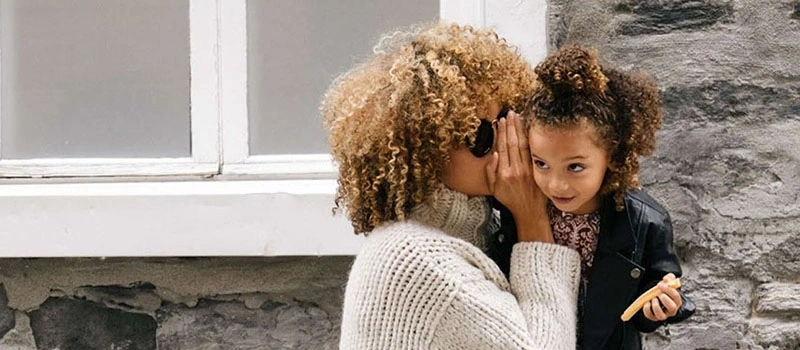
Table of Contents
What is Intergenerational Trauma?
Written By: Charlie Health Editorial Team
March 17, 2022
4 min.
An overview of intergenerational trauma, discussing the ways in which trauma is transmitted across generations, and the potential impacts on individuals and relationships.
Learn more about our Clinical Review Process
Table of Contents
Sometimes, traumatic experiences can overwhelm our ability to cope, leaving us with emotional wounds or psychological distress. Just like a wound to your physical body, psychological injuries require care and attention to properly heal.
If left unchecked, unresolved trauma can be passed down through generations. Multiple factors contribute to this, from an increased vulnerability to mental illness, repeated patterns of neglectful behavior, sexual abuse, substance use, and other unhealthy behaviors. In some families, poor parenting and unsupportive family relationships that are seen as normal patterns can repeatedly cause damage to multiple generations.
Whether you’re coping with the effects of intergenerational trauma or living with post traumatic stress disorder (PTSD) or both, you’re far from alone. The first step to breaking the cycle is to acknowledge your trauma and understand its effects on your identity, relationships, and mental health.
What is intergenerational trauma?
Intergenerational trauma describes consistent and persistent years of traumatic challenges within families across generations. It involves the transmission (or sending down to subsequent generations) of the traumatic effects of an event. Sometimes, intergenerational trauma might begin with one individual family member’s traumatic experience. Other times, it can involve collective trauma affecting a larger community or ethnic, cultural, or racial group (also known as historical trauma).
Intergenerational trauma was initially identified among children of Holocaust survivors. In a 1988 study, researchers found that grandchildren of Holocaust survivors were overrepresented in psychiatric referrals by 300 percent.
Intergenerational trauma and historical trauma are also prevalent across other ethnic groups, including indigenous populations in North America and Australia, and Black communities in the United States. With that said, intergenerational trauma can affect anyone, and recognizing the signs of complex trauma can help families move forward.
Do you need more support with
your mental health?
Charlie Health can help.
How does intergenerational trauma affect relationships?
Children experience the world through the eyes of their caregivers. Studies show that children mimic their parents’ behaviors, and they learn how to cultivate relationships and attachment styles based on their parents’ modeling. If left unchecked, generational trauma can take a serious toll on long-term relationship-building behaviors.
When an individual’s emotional and mental health are compromised and they “suck it up” without resolving the trauma, the wounds continue to fester. Ultimately, these wounds can affect how an individual perceives and treats themselves—and these impacts can spill into relationships with friends, family members, and others.
Unfortunately, many trauma survivors fail to properly address their trauma, and family members often “cope” with intergenerational trauma using two unhealthy coping mechanisms:
- Denial: A grandparent who refused to acknowledge the impact of their own trauma may teach their grandchildren (intentionally or unintentionally) to ignore the impact of a traumatic event.
- Dissociation or other types of emotional numbing can also contribute to denial.
- Minimization: A grandparent might ignore the impact of trauma or make the traumatic experience smaller than it really is.
- “It wasn’t that bad,” or “It could have been worse,” or “Other people had it so much harder though,” are all examples of minimization.
If trauma is left unresolved, the strategies that family members use to “cope” with intergenerational trauma can set a precedent for future generations. The symptoms of unresolved trauma can lead to addictive behaviors (i.e, substance abuse), an inability to deal with conflict, psychological distress, low self-esteem, and other mental health issues.
How can you heal from intergenerational trauma?

Living with trauma can feel overwhelming, but it’s possible to overcome the psychological effects of trauma and move forward. Here are some ways to start addressing and healing psychological trauma:
- Seek professional mental health support. Therapy can feel intimidating, but psychotherapy can provide a safe, confidential space for you to explore the experience of trauma. Mental health professionals are trained to treat trauma survivors, and they can help you develop healthy coping strategies to manage trauma symptoms. For intergenerational trauma issues that are starting to affect your day-to-day functionality, consider an intensive outpatient program. Virtual program’s like Charlie Health make this type of treatment accessible and personalized to fit your unique experiences and needs.
- Practice self-care. It’s not easy to cope with stressors when your mind and body don’t feel their best. And trauma responses such as fight, freeze, flee, or fawn make this even harder. Self-care can help you improve your self-esteem, build resilience, and take care of your mental and physical health. It can be as simple as journaling your emotions, eating a balanced diet, getting enough sleep, or reaching out to your support system.
- Give yourself time to heal. There’s no linear timeline for healing from trauma, and we all heal in our own way. If the healing process feels too intense, it’s OK to slow down.
Contact Us
Psychological trauma can take a serious toll on our relationships, identity, and mental health, and acknowledging the impact of trauma is the first step to moving forward and healing our relationships. Therapy can help trauma survivors build resilience, recognize the effects of trauma, and heal from intergenerational trauma.
At Charlie Health, we offer comprehensive mental health treatment for adolescents, young adults, and their families. Our virtual intensive outpatient program (IOP) combines individual psychotherapy, group sessions, family therapy customized for each patient’s unique needs. We can also arrange ongoing psychiatric support if needed. We are trauma-informed and want to help you and your family heal.
Our experienced, compassionate mental health providers are available to listen to your needs, navigate your treatment options, and help you start the healing process.





